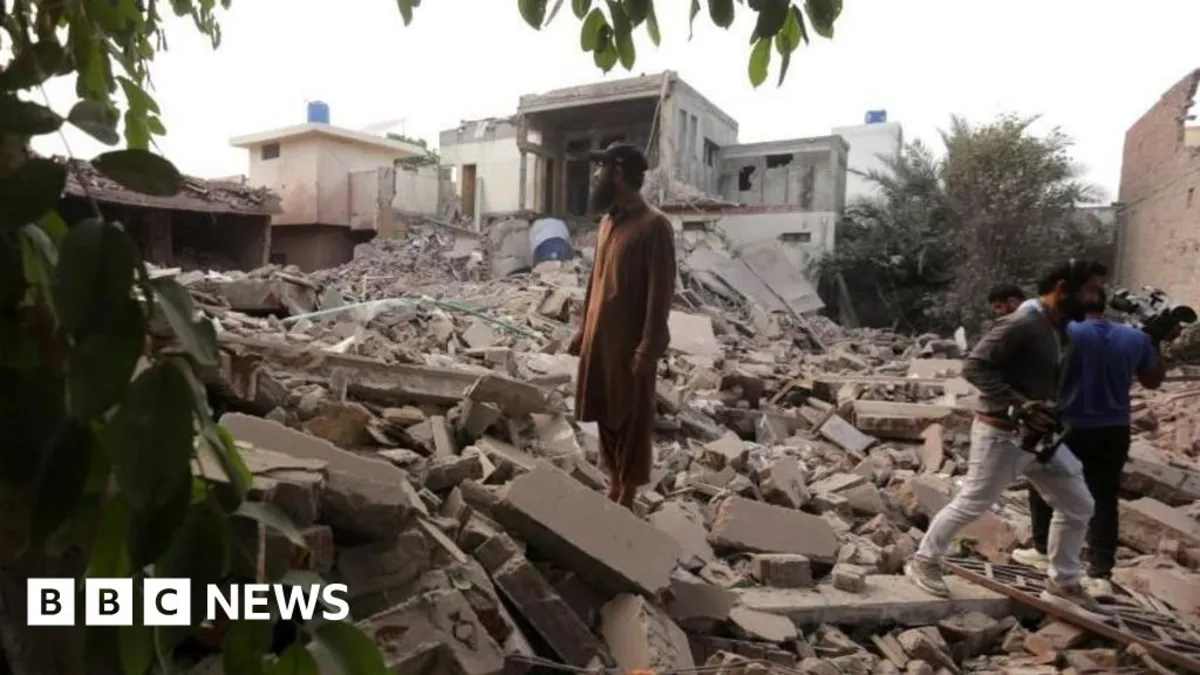
On Wednesday morning, dozens of people gathered at the perimeter of a vast complex in the Pakistani city of Muridke to witness the aftermath of a devastating missile attack. Overnight, Indian missiles targeted buildings within this complex, located near the border with India in Punjab, just a short drive from the bustling city of Lahore. Access to the site was tightly controlled, but even from a distance, the damage was evident as BBC reporters peered through the barbed wire fence surrounding the area.
The BBC interviewed several individuals who experienced the bombardment first-hand. One man recounted that it was the main mosque that was struck, stating, "The sky lit up and it felt like the sky turned red." Another witness described a sudden missile appearing with an explosive blast, prompting him to flee his home. "I had only reached the mosque near my house when there were three more consecutive blasts. I heard all three; they were really loud," he added, illustrating the chaos of that night.
Upon arrival in Muridke, the BBC team noted that security personnel were closely monitoring access to the site. From a nearby road lined with dense housing, they observed a partially collapsed building alongside scattered rubble across a wide area. Emergency workers were still searching the wreckage for potential survivors or casualties, highlighting the urgent need for assistance in the aftermath of the attack.
This complex, which contains a hospital, school, and mosque, was reportedly targeted by India as part of its military response to the killing of tourists in Indian-administered Kashmir last month. The Indian government claims that it struck sites associated with what it labels as terrorist infrastructure. However, the Pakistani government has refuted any connections to the Pahalgam attack that spurred this military action.
The complex in Muridke has a troubled history, having been associated with Lashkar-e-Taiba (LeT), a militant group designated as a terrorist organization by the United Nations. It was subsequently used by Jamaat-ud-Dawa, which observers have identified as a front group for LeT. Although both organizations have been banned by the Pakistani government, they previously occupied the facilities in Muridke.
Local residents expressed concern over the fate of the complex, which typically houses children from surrounding areas attending the madrasa. Fortunately, the facility had been largely evacuated a week prior to the attack, potentially saving lives. As the day progressed, camera crews were permitted to access the site, revealing the extensive damage: roofs crumpled under the force of explosions, and walls bore gaping holes, with debris littering the ground.
In the wake of the missile strikes, the community in Muridke is left grappling with the devastation, hoping that this incident does not lead to further destruction. As residents assess the damage and mourn the loss of infrastructure, the search for answers and accountability continues in a region marked by tensions and conflict.